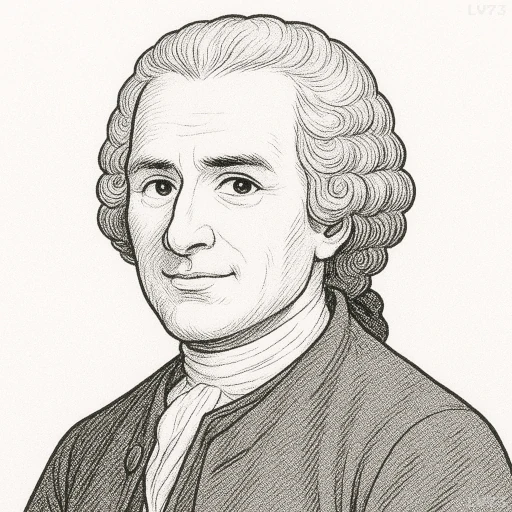“Take from the philosopher the pleasure of being heard and his desire for knowledge ceases.”

- June 28, 1712 – July 2, 1778
- Born in Geneva
- Philosopher, political philosopher, writer, composer
table of contents
Quote
“Take from the philosopher the pleasure of being heard and his desire for knowledge ceases.”
Explanation
In this quote, Jean-Jacques Rousseau highlights a fundamental aspect of human nature: the need for recognition and validation. Rousseau suggests that the philosopher’s drive for knowledge is intimately tied to the pleasure of sharing and discussing ideas with others. The act of being heard and having one’s thoughts acknowledged by others is not merely a social interaction but a significant motivator for intellectual pursuit. Without the prospect of an audience, the philosopher’s curiosity and desire for truth would wane, revealing how social and intellectual validation can influence the quest for knowledge.
Historically, Rousseau’s ideas on the interplay between knowledge and social recognition can be linked to his critique of society’s influence on the individual. In his time, intellectual discourse was often a public affair, with philosophers and thinkers participating in salons or philosophical circles. The desire to contribute to society’s intellectual growth was also fueled by the pleasure of being seen as a source of wisdom. For Rousseau, however, this could also reflect his own ambivalence toward the public eye. While he was an influential thinker, his relationships with the public were often fraught, leading him to question the authenticity of intellectual pursuits when they are driven by the desire for fame or recognition.
In modern times, this quote can be applied to the motivations behind intellectual work and academic pursuits. For many scholars, researchers, or writers, the recognition of their work, whether through publishing, lectures, or discussions, can serve as a key motivator. This desire for recognition, however, can sometimes overshadow the intrinsic value of learning and the joy of discovery itself. Rousseau’s quote encourages reflection on whether intellectual endeavors are truly driven by a genuine pursuit of knowledge or by the desire to impress others and secure one’s place in the intellectual landscape. It raises questions about the balance between self-fulfillment and the social nature of academic work.
Would you like to share your impressions or related stories about this quote in the comments section?


